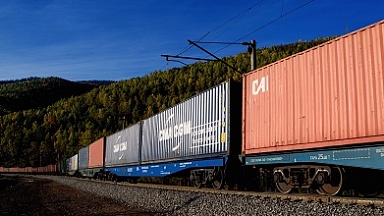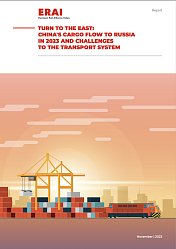The train carries 50 reefer containers comprising frozen fruits and vegetables, seafood and other agro-industrial products. RZD Logistics plans to make this service regular with at least «four trains per month».
As for fresh produce transport between China and Russia, it is essential to underline that this is the first Russia-bound service. It is an import service from China to Russia. In the past, RZD Logistics had launched other refrigerated goods services, with an export profile to China, via Kazakhstan and Uzbekistan. RZD Logistics was also planning to launch a similar service to Turkey.
RZD also looking for alternatives
Apart from European companies looking for transport alternatives due to the war in Ukraine and the sanctions imposed on Russia, RZD is also doing the same. With limited import/export options, the Russian logistics company turned to rail imports from China. «Considering the growing demand from shippers for export-import transportation between Russia and China, the organization of alternative routes is especially important. RZD Logistics develops and offers its customers new logistics solutions», said the company.





